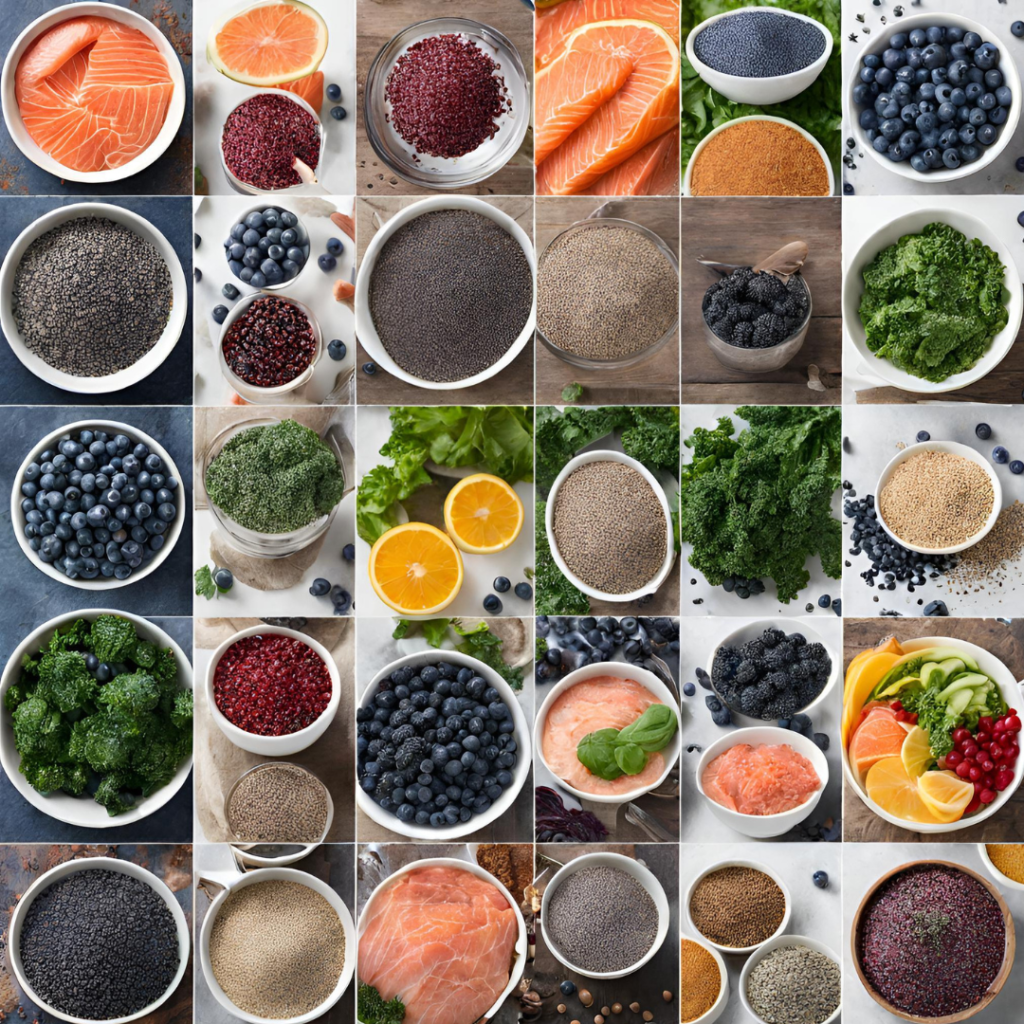Introduction
In recent years, the term “superfood” has become a buzzword in the world of nutrition and health. From kale to acai berries, quinoa to chia seeds, the market is flooded with foods claiming to possess extraordinary health benefits. But what is the truth about superfoods? Are they truly miraculous, or is it all just marketing hype? In this blog, we will explore the world of superfoods, separating fact from fiction and providing you with a balanced perspective on these nutrient-rich foods.

What Are Superfoods?
Superfoods are a category of nutrient-dense foods that are believed to provide exceptional health benefits due to their high concentration of vitamins, minerals, antioxidants, and other bioactive compounds. These foods are often marketed as a way to prevent chronic diseases, boost energy, improve skin, and support weight loss. While there’s no official scientific definition of superfoods, many of these foods have been shown to have health-promoting properties.
Separating Fact from Fiction
- Myth: Superfoods Alone Can Prevent Disease
One common misconception about superfoods is that they have the power to prevent or cure various diseases. While superfoods can be a valuable part of a balanced diet, they are not magical solutions on their own. No single food can provide full protection against chronic diseases. A healthy lifestyle, which includes a diverse diet, regular exercise, and adequate sleep, plays a more significant role in disease prevention.
Fact: Superfoods are packed with essential nutrients and antioxidants that can support overall health when consumed as part of a balanced diet.
- Myth: Superfoods Are Exotic and Expensive
Many people associate superfoods with exotic and expensive options like goji berries, chia seeds, or spirulina. While these foods offer unique health benefits, there are plenty of affordable and locally available superfoods that can be equally nutritious. Items like kale, blueberries, broccoli, and oats are readily accessible and budget-friendly.
Fact: Superfoods can be both exotic and everyday items, making it possible for everyone to incorporate them into their diets.
- Myth: All Superfoods Are Created Equal
Not all superfoods are equal in terms of their nutritional content and health benefits. Some superfoods are indeed packed with essential nutrients and antioxidants, while others may not live up to the hype. It’s essential to do your research and choose superfoods that align with your specific health goals.
Fact: Some superfoods are more nutrient-dense and offer more significant health benefits than others. It’s crucial to select superfoods that meet your specific dietary needs.
- Myth: Superfoods Can Replace a Balanced Diet
While incorporating superfoods into your diet is a positive step towards better nutrition, they should not be used as a substitute for a well-rounded diet. A variety of foods from all food groups is essential to ensure you get all the necessary nutrients your body needs.
Fact: Superfoods should complement a balanced diet that includes a variety of foods to provide all essential nutrients.
- Myth: Superfoods Guarantee Weight Loss
Superfoods are often marketed as a quick fix for weight loss. While some superfoods can aid in weight management due to their low calorie content and high fiber content, they are not a guarantee for shedding pounds. Weight loss requires a combination of a calorie-controlled diet and regular physical activity.
Fact: Superfoods can be part of a weight loss strategy but should be combined with other healthy lifestyle changes.
- Myth: Superfoods Can Cure All Skin Issues
Superfoods like avocados and salmon are praised for their skin-boosting properties, and while they can contribute to healthier skin, they cannot address all skin problems. Skin health is influenced by various factors, including genetics, skincare routines, and overall nutrition.
Fact: Superfoods can improve skin health, but they are not a substitute for a comprehensive skincare regimen and overall balanced nutrition.
Superfoods Worth Including in Your Diet
Now that we’ve separated fact from fiction, let’s take a closer look at some superfoods that have earned their reputation:
- Blueberries: Rich in antioxidants, blueberries can help combat oxidative stress and reduce the risk of chronic diseases.
- Kale: Packed with vitamins and minerals, kale is an excellent source of nutrients that promote overall health.
- Quinoa: A complete protein source, quinoa is a versatile grain that is gluten-free and packed with essential amino acids.
- Salmon: A great source of omega-3 fatty acids, salmon supports heart health and brain function.
- Spinach: High in iron and vitamins, spinach is a nutrient powerhouse that supports bone health and overall well-being.
- Chia Seeds: These tiny seeds are rich in fiber, omega-3 fatty acids, and can help regulate blood sugar levels.
- Almonds: Loaded with healthy fats and fiber, almonds are an excellent snack option for maintaining energy levels.
Conclusion
Superfoods can undoubtedly be a valuable addition to your diet, providing a range of essential nutrients and health benefits. However, it’s essential to approach superfoods with a balanced perspective, understanding that no single food can work miracles. A well-rounded diet, along with a healthy lifestyle, is the key to achieving and maintaining optimal health. So, while superfoods can be a beneficial part of your nutrition plan, don’t forget to enjoy a diverse and balanced diet that includes a variety of nutrient-rich foods.
